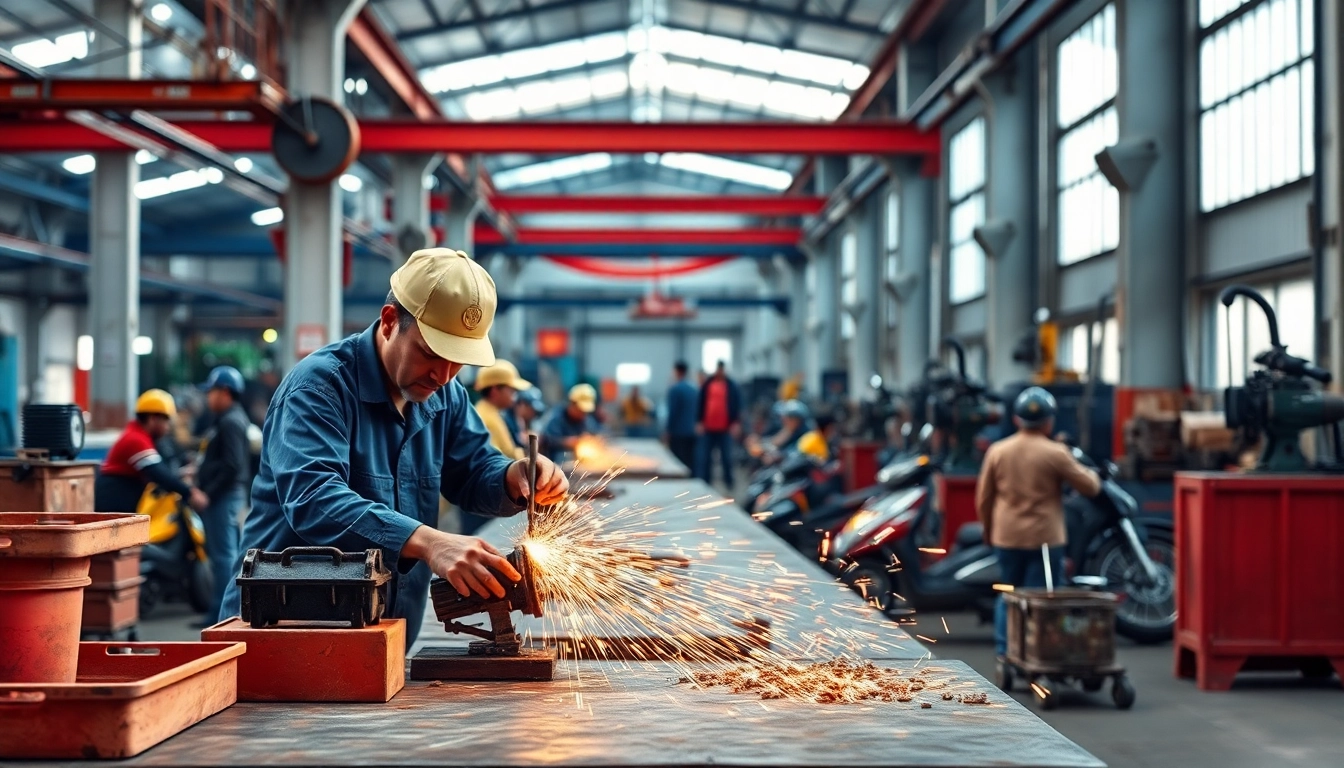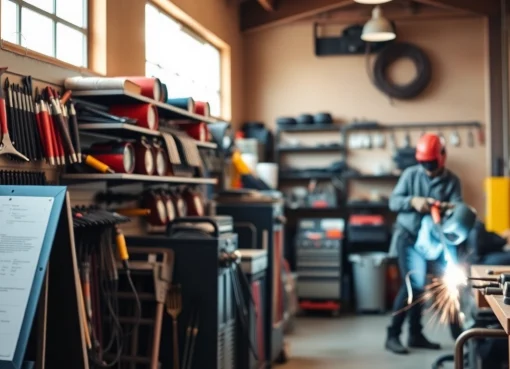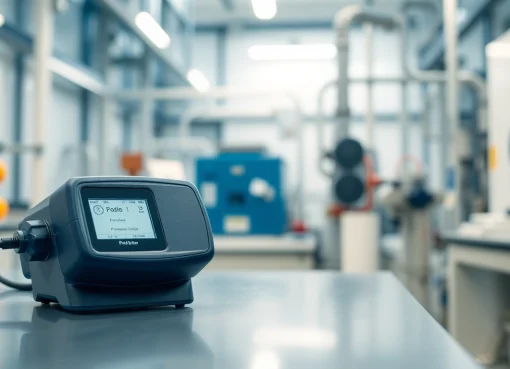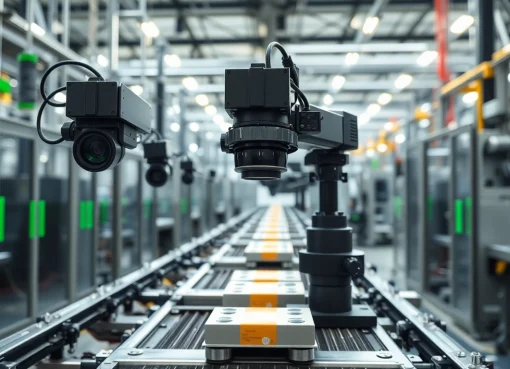Top Filling Machine Manufacturers: Elevate Your Production Efficiency Today

Introduction to Filling Machines
Filling machines are essential components in various industries, playing a critical role in the automated packaging of goods. These machines accurately dispense products into their containers, ensuring efficiency, precision, and consistency in the production line. One of the leading categories of equipment in modern manufacturing, filling machines are designed to cater to a wide array of products, from liquids to powders. For businesses looking to enhance their operational efficiency, understanding the market of filling machine manufacturers is cornerstone to making informed procurement decisions.
This article will explore the vital aspects of filling machines, including their historical development, types available in the market, criteria for selecting manufacturers, competitive insights, and detailed guidance for procuring the ideal equipment for your business needs.
What is a Filling Machine?
A filling machine is a device designed to dispense a specific quantity of product into a container. The operation can vary significantly based on the product type, viscosity, container size, and the required output speed. Typically categorized by the product they handle, filling machines can dispense liquids, granules, powders, and more.
These machines streamline the packaging process, improving the speed and accuracy of filling operations and reducing the likelihood of human error. Filling machines often feature advanced technologies that enhance their usability, such as adjustable speeds, automatic counting, and various filling mechanisms including volumetric, gravimetric, and net weigh systems.
History and Evolution
The history of filling machines can be traced back to the late 19th century, where manual methods predominated. Initially, workers filled bottles and containers by hand, a process that was both time-consuming and prone to inaccuracy. However, industrialization brought about a need for greater efficiency, leading to the development of mechanical filling systems.
By the 20th century, inventions such as the piston filler and gravity filler transformed the industry. The introduction of automated systems in the 1960s and 70s firmly established filling machines as essential tools in manufacturing. Today, advanced technology has integrated robotics and computer systems, allowing for sophisticated filling machines that can be customized to specific production needs.
The Role of Filling Machines in Industry
Filling machines serve critical functions across various sectors, including food and beverage, pharmaceuticals, and cosmetics. In the food industry, for instance, they ensure precise filling of liquids and solids, maintaining hygiene and quality standards. In pharmaceuticals, filling machines are crucial for dispensing medications accurately, essential for compliance with health regulations.
One of the undeniable advantages offered by these machines is enhanced productivity, significantly reducing the time to market for new products. Furthermore, automation provided by filling machines enhances reliability and allows for consistent quality without the variability introduced by human workers.
Criteria for Choosing Filling Machine Manufacturers
Quality and Reliability
When selecting a filling machine manufacturer, quality should be the foremost consideration. High-quality machines will not only operate more efficiently but also provide consistency in production, ultimately leading to reduced waste and increased profits. It’s vital to investigate the material and engineering quality of the machine, taking into consideration whether the manufacturer adheres to regulatory standards relating to safety and durability.
After-Sales Support and Service
Robust after-sales support is crucial in the filling machine industry. Look for manufacturers that offer comprehensive servicing and maintainability as part of their package. This includes readily available spare parts, training for your operational staff, and assistance for troubleshooting any mechanical issues. Companies like Accutek Packaging and Cozzoli Machine Company provide excellent customer service, enhancing the longevity and efficiency of their equipment.
Innovation and Latest Technology
In a fast-paced industrial environment, embracing the latest technological advancements can make a significant difference. Choose manufacturers that invest in research and development, introducing innovative features such as smart sensors, improved interfaces, and automated cleaning systems. Efficient machinery that can adapt to changing production needs is key to sustaining competitive advantage.
Categories of Filling Machines
Automatic vs. Semi-Automatic Filling Machines
Filling machines can be broadly classified into automatic and semi-automatic types. Automatic filling machines handle the entire process without human intervention, which increases efficiency and reduces the chances of contamination. These machines are ideal for high-volume production scenarios, where rapid filling is essential.
On the other hand, semi-automatic machines require some human oversight but automate significant parts of the operation, offering a balance between productivity and cost. Smaller businesses or those with varying product sizes may opt for semi-automatic systems to allow flexibility without incurring high overhead costs.
Machines for Thick and Thin Liquids
Filling machines can also be tailored for specific product types, especially when distinguishing between thick and thin liquids. Liquid filling machines designed for viscous products (like sauces or creams) often utilize piston or positive displacement methodologies to ensure proper flow, while those for thin liquids (like water or juices) typically deploy gravity or volumetric filling systems.
Machines for Various Container Types
Adaptability is another critical factor in choosing a filling machine. Modern filling machines can accommodate various container types, whether glass, plastic, or metal. Manufacturers like Fogg Filler and E-PAK Machinery provide machines with interchangeable nozzles, allowing transitions between container types efficiently.
Competitor Analysis in the Filling Machine Industry
Main Players in the Market
The market for filling machines has several key players, including companies like Accutek Packaging Equipment Company, Cozzoli Machine Company, and Filling Equipment Co Inc. Each of these players has established a reputation based on product quality, customer service, and innovative solutions. For instance, Accutek produces a wide range of equipment suitable for many industries, whereas Cozzoli is known for its robust filling and capping machines designed for liquid products.
Competitive Advantages
Each manufacturer tends to have competitive advantages that set them apart. Some focus on niche markets, offering specialized machines tailored for specific industries. Others highlight their use of cutting-edge technology to enhance efficiency and reduce waste. Understanding these distinctions can help businesses make better procurement decisions based on their specific operational needs.
Emerging Trends
The filling machine industry is witnessing several emerging trends. Automation continues to rise, driven by advancements in robotics and AI, allowing manufacturers to produce more sophisticated machines capable of real-time monitoring and adaptive functionality. Sustainability is another crucial trend, with an increasing emphasis on machinery that reduces waste and energy consumption, catering to the eco-conscious business model. Additionally, the rise of e-commerce is pushing manufacturers to develop flexible and adaptable filling solutions that cater to smaller production runs.
Conclusion and Recommendations
How to Purchase the Best Filling Machine
To procure the best filling machine for your business, start by assessing your specific needs—including production volume, product types, and container variations. Research manufacturers comprehensively, reviewing case studies and testimonials to gauge customer satisfaction and support services. Engage with several suppliers to compare offers, and always request demonstrations to evaluate machinery performance firsthand.
Frequently Asked Questions
When considering filling machines, businesses often have questions about operational efficiency, maintenance requirements, and return on investment. Engaging directly with prospective suppliers can yield valuable insights and detailed answers specific to your operational context.
Comparing Prices and Features
Finally, while price is a vital factor, it should not be the sole determinant. Consider the total cost of ownership, including maintenance, operation, and efficiency. A slightly higher-priced machine might offer enhanced durability and features that lead to lower long-term costs.



Leave a Comment